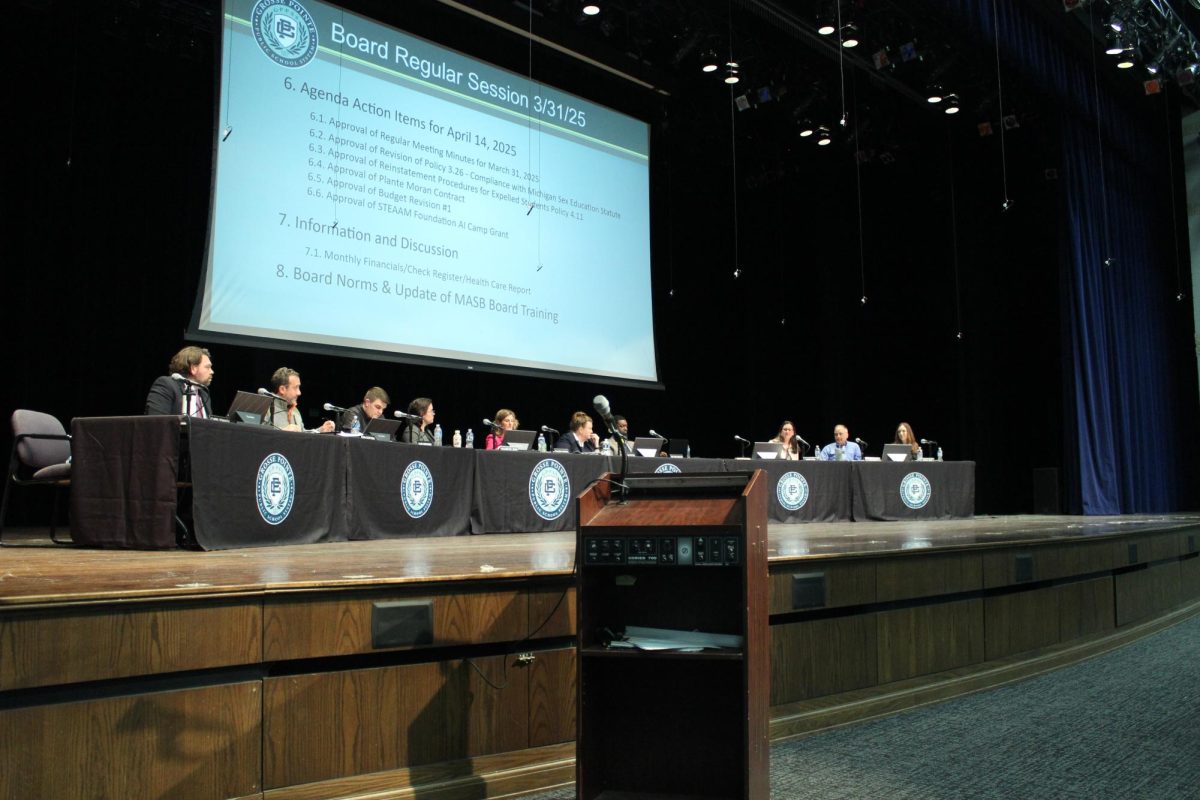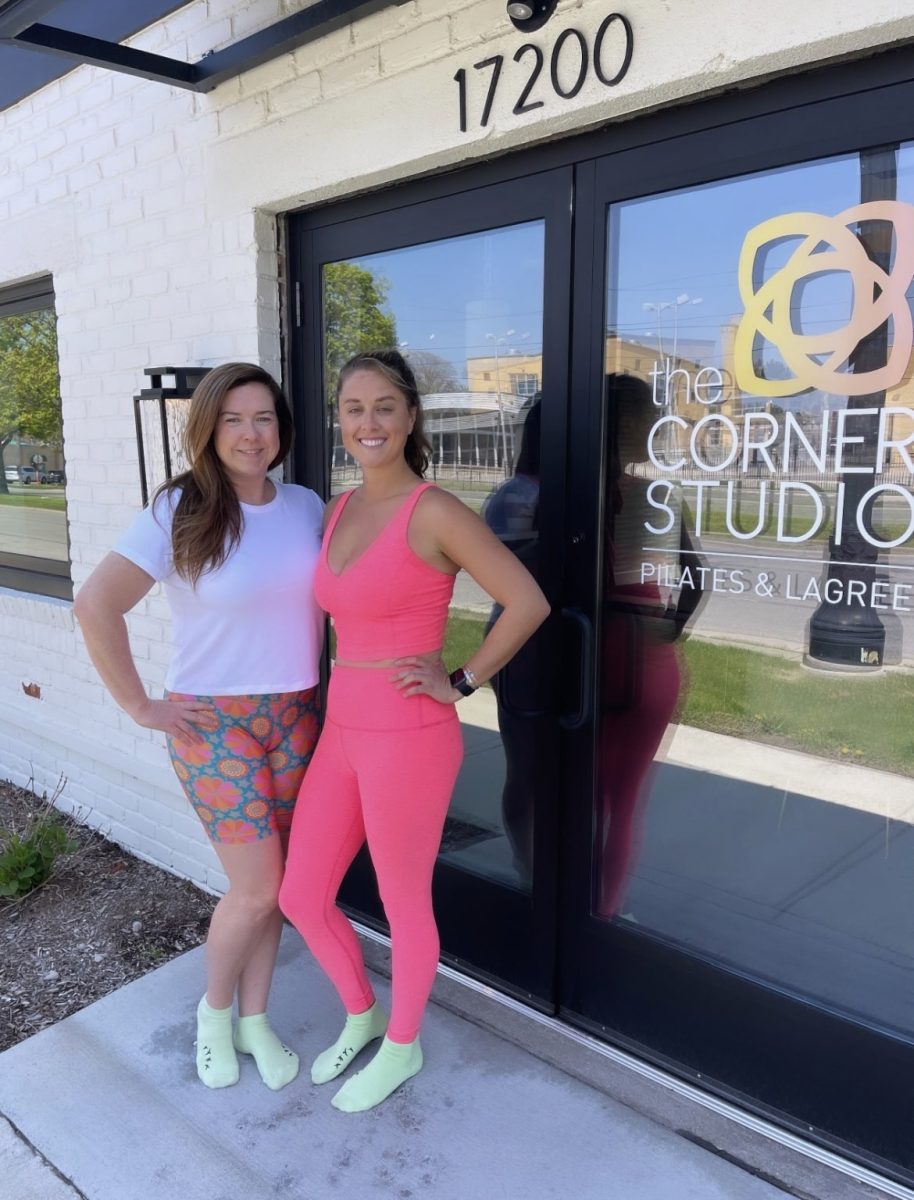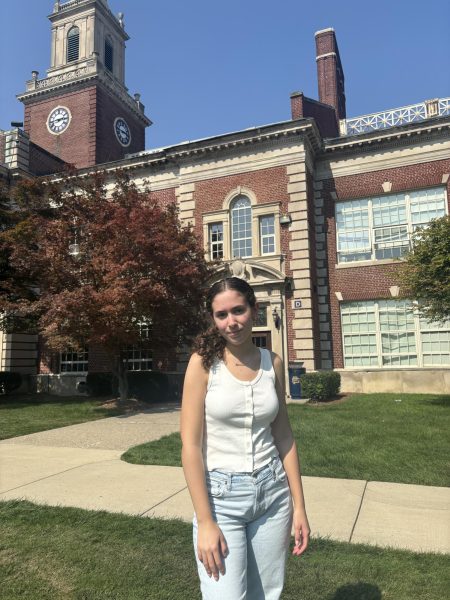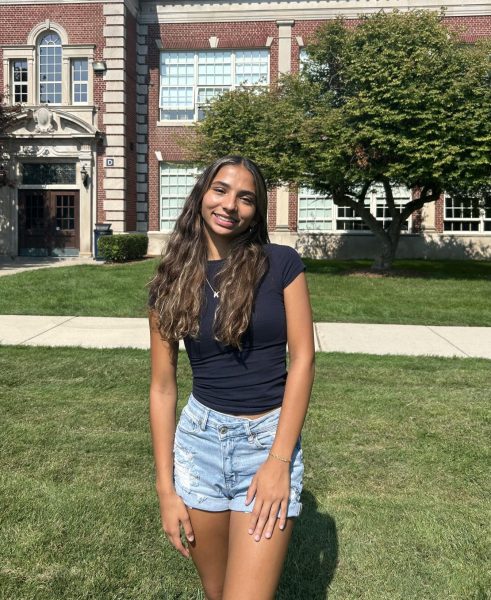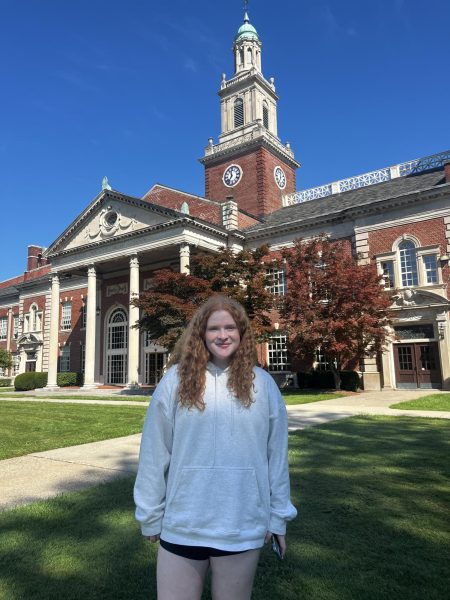Christmas trees, Santa hats, advent calendars and parties. These are all things that have grown to be staples of many South students’ holiday season, with Christmas being the most widely celebrated holiday communitywide and even worldwide. Yet, many do not consider that these are all things with deep religious connotations in connection with the historically Christian holiday.
After the landmark Supreme Court cases of the 1960s, religion has become a sensitive subject within public schools to ensure inclusivity. Attending a public school district, such as Grosse Pointe Public Schools (GPPSS), means the holiday season is a time of trepidation when it comes to planning school events, fundraisers and even decorating. Even school clubs, such as the class councils, must take care in planning any holiday themed events to ensure inclusivity in regards to religion.
“We’re planning a fundraiser that we’re calling ‘Cookies with Santa,’” Class Council Vice President Brigid Williams ’25 said. “Our advisor had concerns that it was too Christmas, and we’re supposed to be non-denominational.”
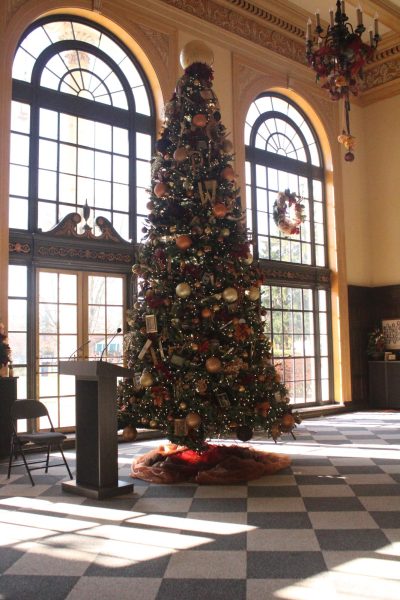
Williams had to go through a much longer process to get this event approved by South’s administration because of the role Santa Claus, a character developed from a Christian saint, would play in it.
“Normally we just send in an approval form online and it’s taken from there,” Williams said. “I had to talk to multiple different teachers about (Cookies with Santa) and write up a Google doc. It took a lot longer to get approved.”
Williams noticed hesitation from administration and the Class Council Advisor, Kendra Caralis, because of similarities with a previously proposed event from another class in which a Christmas themed event would take place during the school day.
“My main argument was that it’s on the weekend and it’s a choice (to attend),” Williams said. “No matter what religion people are affiliated with, admin always tries to limit what you can bring into school.”
Principal Moussa Hamka identifies delays like these as a necessary step to ensure all South students are included and that the Christmas holiday does not overshadow the many others taking place in December.
“We want to celebrate everybody,” Hamka said. “We cherish everyone, we cherish our seasonal traditions, but we don’t formally celebrate any religious holidays at the school.”
Even with this consideration at the high school level, many of South’s current students have elementary school experiences of holiday parties during the school day just before the start of break, leading many students to wonder why there is such a lack of these things within high schools in the same district.
“I went to Kerby Elementary, and we always had a Christmas party,” Williams said. “It was always heavily themed in my elementary school experience, and as I got older, I started seeing holidays expressed less and less in the classroom.”
Hamka noticed a big shift towards a non-religious holiday setting within public schools early on in the 2000s. Since then, many schools have chosen to remove all holiday-related decorations and events entirely, but for South’s administration, finding a balance is more important.
“If you celebrate one, how do you celebrate another? I think Cleminson Hall is a really great example of that,” Hamka said. “If you go in, you’ll see an explanation to the left of the tree. It talks about the significance of all beliefs, backgrounds and cultures. It’s not a Christmas tree, it’s a holiday tree.”
Even with the prevalence of questions surrounding religion’s place in school today, complete neutrality is a relatively new practice, and many generations didn’t experience the same things around the holidays.
“It was just simply Christmastime,” lifelong Grosse Pointe resident Betsy McCormick ’58 said. “We talked about Christmas, we used the word Christmas. It was a very Christian-focused community at that time.”
Also a lifelong member of Grosse Pointe’s Christ Church, McCormick has seen religion as a whole change as she’s gotten older, with participation amongst teens much different from when she was in high school.
“As teenagers, we were so interested in religion,” McCormick said. “It was a great gathering spot for young people to get to know each other and socialize. I don’t see as many children (now).”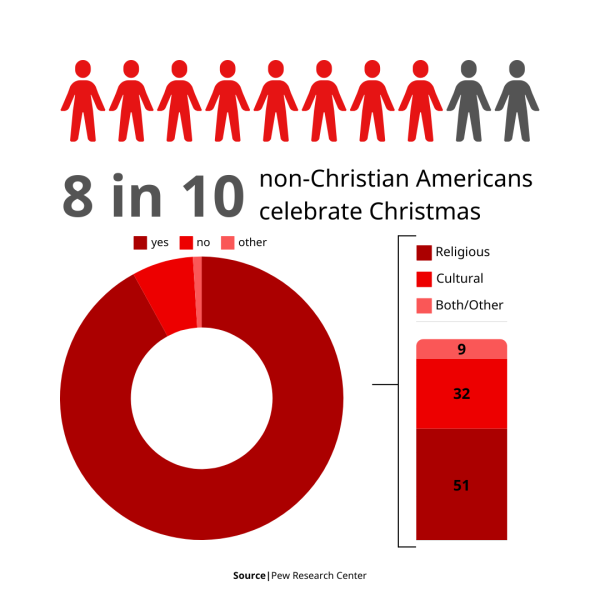
For Williams, who grew up in a Christian household herself, the holiday season has become less centered around religion as she’s grown up.
“When I was younger, we spent more time going to church, especially around the holidays,” Williams said. “But as I’ve gotten older and my parents have gotten busier, holidays haven’t been as religiously centered. Christmas, for me, is just more about the family aspect.”
Though there are many careful considerations paid to decor and events around the holidays, many have questioned the religious connotations of school breaks occurring around largely Christian holidays within GPPSS.
“Schools are a reflection of the community that they serve, especially in communities like Grosse Pointe that are not open to students outside of the district,” Hamka said.
The state of Michigan mandates that 70% of students must be in their seats for a school day to count. Because of this, in a community like Grosse Pointe in which the majority celebrates the Christian holidays of Christmas and Thanksgiving, these dates fall at the same time as school breaks to meet the needs of students while following rules of the state.
“If the community you represent isn’t going to come to school and it won’t count as a school day, it makes sense to not have school,” Hamka said. “Then you don’t force kids to choose between their religion and their school days.”
This applies to any schools with a large population from different backgrounds. Various communities throughout Michigan offer other religious holiday breaks, not just the Christian ones.
“When I came from West Bloomfield High School, we would get the Jewish holidays off as well as your traditional Christian holidays,” Hamka said. “They would be off for holidays like Yom Kippur and Rosh Hashanah.”
Because of this, certain traditions such as South Choir’s caroling and concerts in December still include many Christmas songs and costumes in order to connect to their audience.
“In most years, we do the Hallelujah Chorus, and a lot of (songs) do relate to Christmas,” Choir President Jolina Huchingson ’25 said. “A lot of them have (been) passed down.”
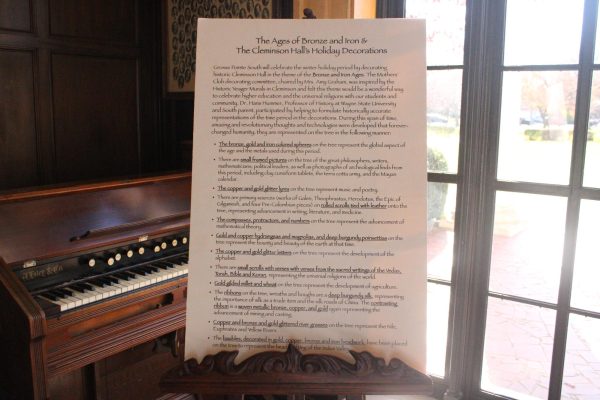
This year specifically, South’s Choir performed at the tree lightings in both The Village and Campus Martius, in addition to their usual carolling and performances. Huchingson noticed that songs with deeper religious meaning are more commonly sung at carolling events outside of school hours and settings.
“A lot of the time in choir and choral settings, you’re singing a lot of songs from different cultural and religious backgrounds,” Huchingson said. “But more of the caroling songs, like ‘Silent Night’ or ‘Angels We Have Heard on High,’ are religious songs.”
Other school choirs in communities with large populations that practice other faiths also have religiously diverse setlists. A large component of this is based on the holiday that’s taking place around that time.
“If you go to Dearborn, their holiday concert around now does have some Christmas music,” Hamka said. “But their spring one has some songs about the Islamic faith.”
Finding the middle ground between having holiday spirit and pushing one religion or another is a major concern for administration. There’s a delicate balance sought throughout the holiday season to ensure that nobody feels underrepresented or uncomfortable, a task often found difficult for public schools.
“We can teach about religion in class but that doesn’t mean we’re promoting our religion,” Hamka said. “We can educate, we can discuss and we can celebrate, but there’s a balance and you don’t want to cross that line.”

